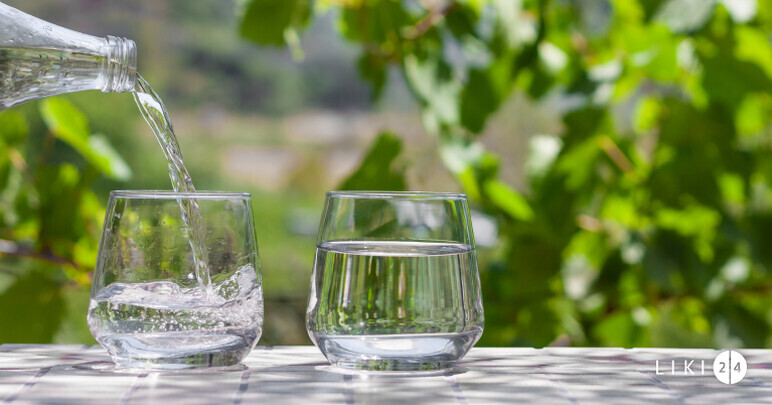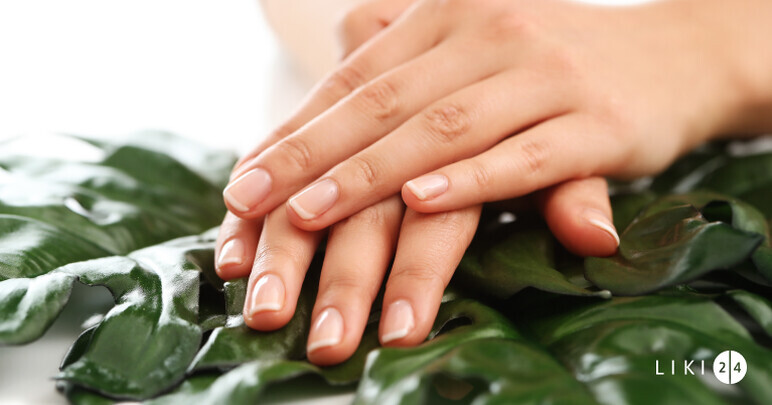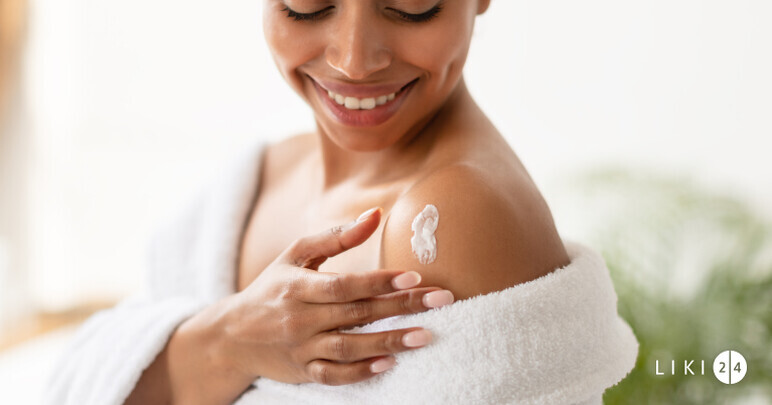Cleansing gel with glycolic acid, 150 ml, Ivatherm
Glycolic Acid
- Filters
- Prices (5 - £82)
- Description
- Analogues
- Reviews


out of stock

Revitalum foot cream with 10% glycolic acid, 75 ml, Eveline Cosmetics
out of stock
out of stock

Basic principles of healthy digestion: what helps keep your stomach healthy

Description Glycolic Acid
The information in the FAQ section was created by the Liki24.co.uk team and is based on the official manufacturer's manual
Glycolic acid is a substance that acts as an exfoliant and belongs to the alpha hydroxy acid group. It is commonly used in exfoliating preparations because it has the ability to smooth wrinkles, reducing their depth and restoring the skin's natural glow, while also improving acne and pigmentation spots.
What is glycolic acid?
Glycolic acid is a colourless, odourless, hygroscopic product that is highly soluble in water and found naturally in beetroot, sugar cane and pineapple.
Glycolic acid is an alpha hydroxy acid or AHA, one of the most widely used skin care products. The alpha hydroxy acids group also includes lactic acid, citric acid and malic acid. Because it has the smallest molecular structure, it can penetrate deep into the skin to smooth the layers of the epidermis, reduce wrinkles and act on imperfections.
Glycolic acid contains H, C, O, and its tiny molecules are easily absorbed by the skin, making the exfoliation process much more effective than other types of acids in the AHA group.
How does glycolic acid work?
Glycolic acid accelerates the dissolution of the bonds that hold skin cells together, enabling the body to remove dead skin cells more quickly and effectively. It also penetrates deep into the skin.
It acts deep within the skin and stimulates the production of collagen, a protein that makes the epidermis elastic and firm, as the skin produces less and less collagen as it ages.
What are the benefits of glycolic acid?
Fights ageing
Glycolic acid acts in the deep layers of the skin, smoothing fine lines and improving skin texture, reducing hyperpigmentation and skin blemishes, and stimulating the production of hyaluronic acid and collagen in the epidermis for elasticity and firmness.
Deep exfoliation
This acid is a chemical exfoliant that removes the outer layer of skin cells, as well as the oil present at this level. Because it has a complex action, it does not require strong action or exfoliation of the skin.
Moisturising properties
Glycolic acid has the ability to attract water and bind it to skin cells, meaning it is an excellent moisturiser, capable of providing the skin with adequate hydration, regardless of age, so that the skin does not dry out.
Help in treating acne
Glycolic acid can be beneficial for people with acne because it has a gentle exfoliating action, cleansing deeply without clogging pores with dead skin cells and is safe for the skin. In addition, constant moisturisation of the body's protective barrier also helps people with acne, whose skin can normally flake and dry out.
Antioxidant and antibacterial
Studies have shown that glycolic acid may improve the appearance of the skin, providing antioxidant and antibacterial protection.
It can smooth fine and deep wrinkles and brighten certain areas of the skin where hyperpigmentation or sun spots have appeared due to ageing. However, glycolic acid does not make scars disappear.
How is glycolic acid used?
Glycolic acid is found in a wide range of beauty and skincare products available in pharmacies and can be used without a prescription. From creams and toners, cleansers, to masks and anti-wrinkle creams with glycolic acid or peels, you can purchase everything you need online or in physical pharmacies.
Rubbing your skin with cane sugar cannot provide the same results as a glycolic acid peel performed in a specialist clinic. In addition, glycolic acid used at home can penetrate the skin more deeply and may cause greater exfoliation over time. Using a single glycolic acid-based product is sufficient, along with moisturising creams and skin care solutions or cosmetics selected according to skin type.
What are the contraindications for glycolic acid?
Glycolic acid can cause unpleasant reactions: rashes, swelling, itching, stinging, burning sensations, excessive dryness of the skin. All of these can lead to hypersensitivity in those with problems. A simple walk outdoors can cause skin burns if glycolic acid has been used previously.
Frequent use or use in too high a concentration causes skin damage and irritation.
It is recommended that you talk to your dermatologist about effective skin cleansing methods before making any decisions, as well as about the amount of glycolic acid that can be used without any problems.
Glycolic acid is an excellent substance for cleansing the skin and improving its appearance, which can effectively combat acne and ageing when used properly. Your dermatologist can advise you on the dosage and method of use for optimal and safe results.
Features
| Category | Atopic Dermatitis, Dermatology, Beauty and Care, Skin care, Cleansing and Make-up Removal, Facial Creams and Care Products, Masks and Face Bands, Skin Exfoliation, Toners and Lotions, Skin Care Serums and Ampoules, Body care, Body creams, Foot care, Foot creams, Skin Cleansing Gels, Skin Cleansing Foams, Toners, Face Serums |
| Brand | Collistar, Dermena, Eveline Cosmetics, Iroha, Isis Pharma, Ivatherm, Mario Badescu, Minimalist, Peter Thomas Roth, Revox, Sesderma |
| Product type | Cream, Cream gel, Exfoliating toner, Foams, Gels, Mask, Serum |
Reviews
Average rating %s based on %s reviews

Glycolic Acid Just Glycolic Acid 20%, 30 ml, Revox
I've only used it 3 times so far, I'll see if it helps later.

Exfoliating face and neck toner, Glycolic Acid 7%, 250 ml, Revox
A very good quality toner! I recommend !

Exfoliating face and neck toner, Glycolic Acid 7%, 250 ml, Revox
A very good quality toner! I recommend !

Glycolic Acid Just Glycolic Acid 20%, 30 ml, Revox
I've only used it 3 times so far, I'll see if it helps later.



































